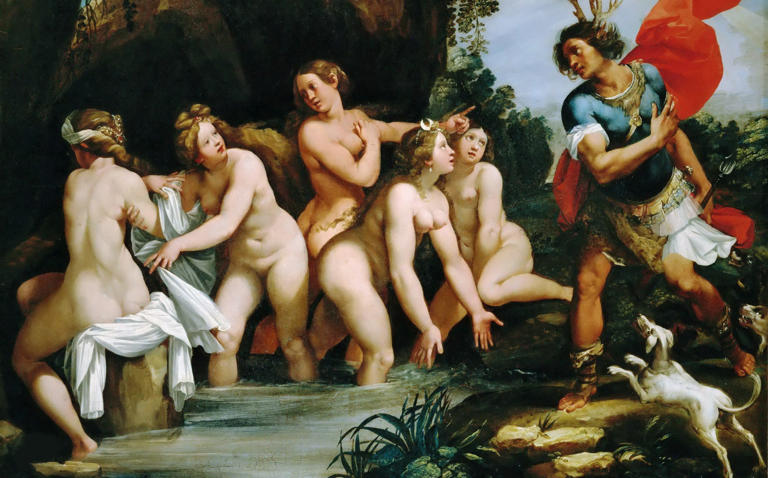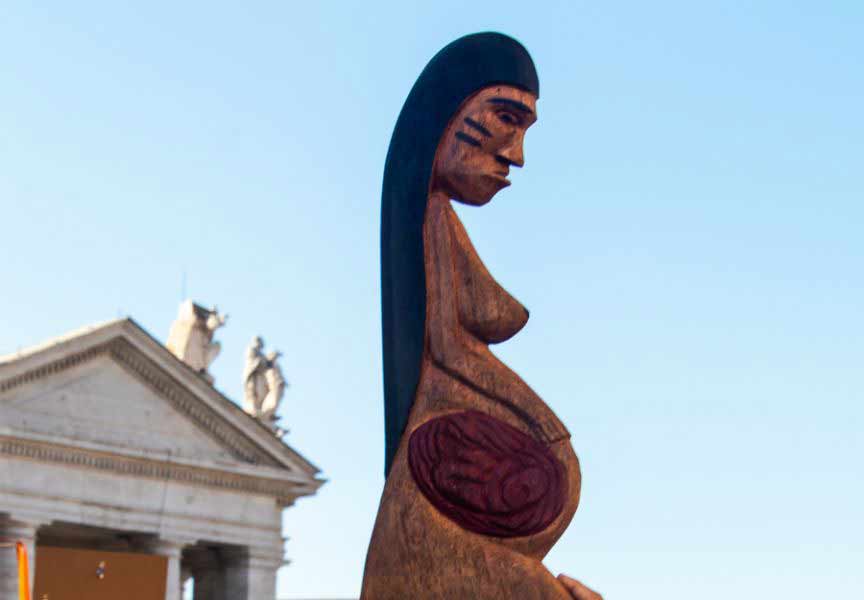 |
| Statue of Hanuman under construction in Mississauga |
A 55-foot high statue of Hanuman, the Hindu monkey god, is going up currently in Mississauga. Candice Malcolm, of True North, is disturbed by this, but apparently cannot articulate why. She says it is wrong thar this statue is being built at the same time that statues of Sir John A. Macdonald or Queen Victoria are being pulled down or covered up. But that is a non sequitur: putting up one statue does not imply pulling down others. She knows in her gut it is wrong, but not why.
It is one of several recent incidents that actually illustrate a fatal flaw in multiculturalism. Another is a current protest in France by Muslim parents, that threatens to become violent, over showing nude Renaissance paintings in art history classes.
The problem is that Hanuman is manifestly an idol. A statue of the Buddha, or Confucius, would not be a problem; that would only be, like Sir John A., a memorial to a great man. A statue of Krishna would not be; Krishna is conceptually an avatar of the one true God. But Hanuman—a humanoid form with a monkey’s head and tail, holding a mace—he is a separate, inhuman divine being. He looks like a golden calf.
Prohibition of idolatry, shirk, is the core and central tenet of the Abrahamic religions.
“You shall not make for yourselves an idol, nor any image of anything that is in the heavens above, or that is in the earth beneath, or that is in the water under the earth: you shall not bow yourself down to them, nor serve them.”
But, you might say, liberal principles demand freedom of worship. The Christian, Muslim or Jew must allow the Hindu to follow his own beliefs, and worship what he pleases, even in this very public manner.
Yet in Jewish, Muslim, or Christian law, this is beyond the limits of tolerance. The punishment for idolatry is death.
“If your very own brother, or your son or daughter, or the wife you love, or your closest friend secretly entices you, saying, ‘Let us go and worship other gods’ (gods that neither you nor your ancestors have known, gods of the peoples around you, whether near or far, from one end of the land to the other), do not yield to them or listen to them. Show them no pity. Do not spare them or shield them. You must certainly put them to death. Your hand must be the first in putting them to death, and then the hands of all the people. Stone them to death…”
Polytheistic idol-worshippers, are most plainly the kafirs against whom good Muslims are to wage eternal jihad.
The Catechism of the Catholic Church writes “the duty to offer God authentic worship concerns man both as an individual and as a social being.”
If, in the Old Testament, Israel allows the worship of idols in its midst, a jealous God will visit destruction on the nation. This caused the fall of Israel to the Babylonians.
So there is a fundamental contradiction here: if one is to allow Jews, Christians, and Muslims freedom of religion and of conscience, one cannot allow Hindus full freedom of religion alongside them.
It is all tolerable so long as they are in separate jurisdictions; but not in the same jurisdiction. Not both in the same city.
The French case of nudes in art is similar. Muslim parents are right, in Muslim terms, that showing naked women to their children is haram; it is not in Christianity. The Sistine Chapel, where popes are chosen, is adorned with naked images. Accordingly, if Christians and Muslims attend the same school, either the faith of the Muslim children must be contradicted, or the Christian children must be denied their cultural heritage.
 |
| The painting that caused the protests in France |
Peace, freedom, and mutual respect may therefore require an end to mass immigration, and a renewed emphasis on assimilation to the existing culture whenever one does immigrate. If you choose to migrate to Canada, or France, you have chosen freely to live by established Judo-Christian as well as liberal-democratic principles.















_-_James_Tissot_-_overall.jpg)




























